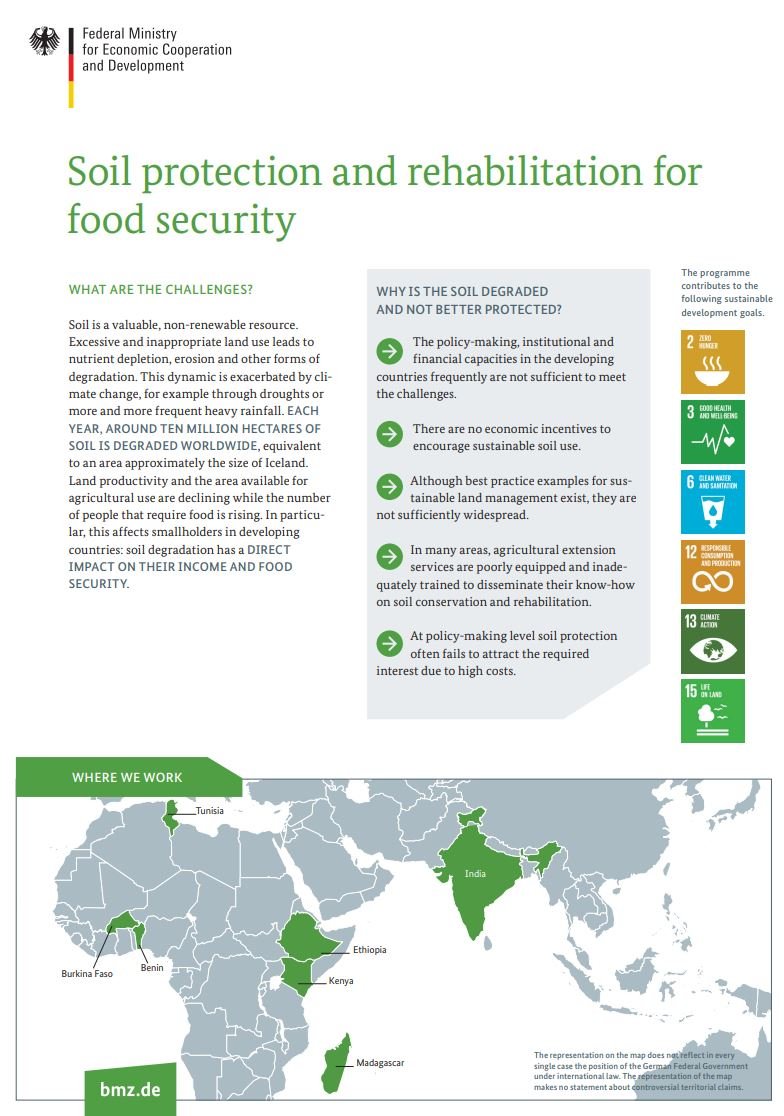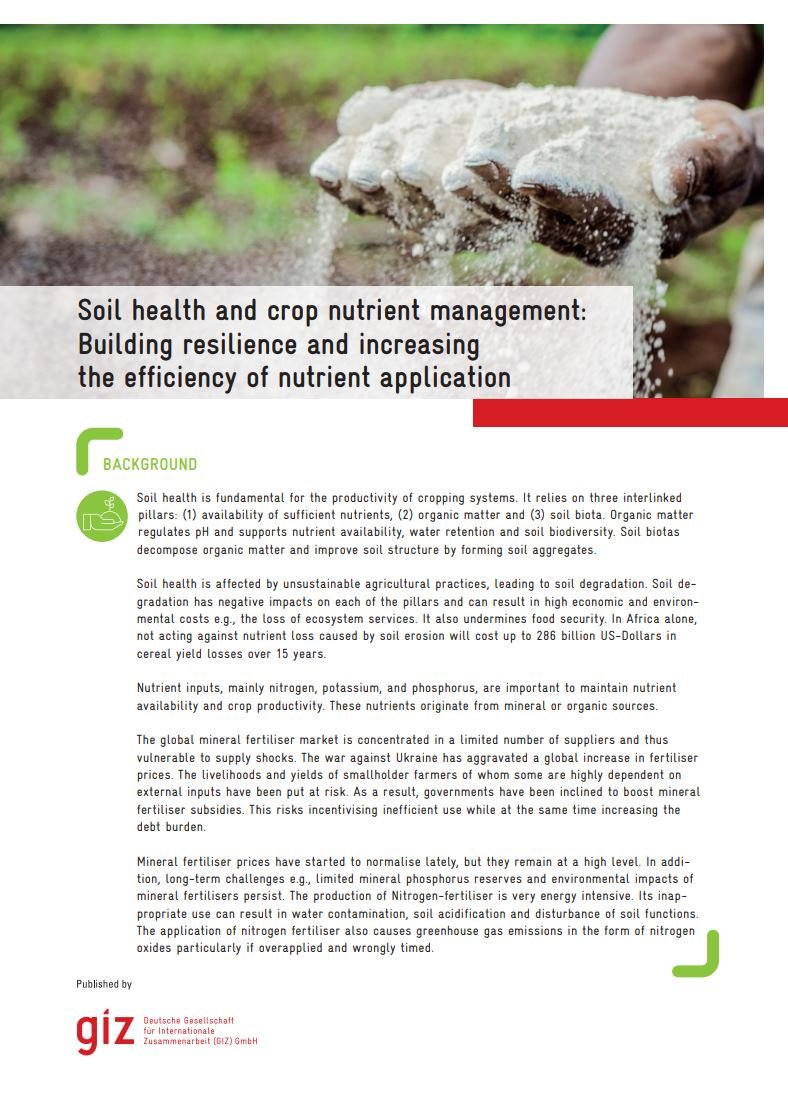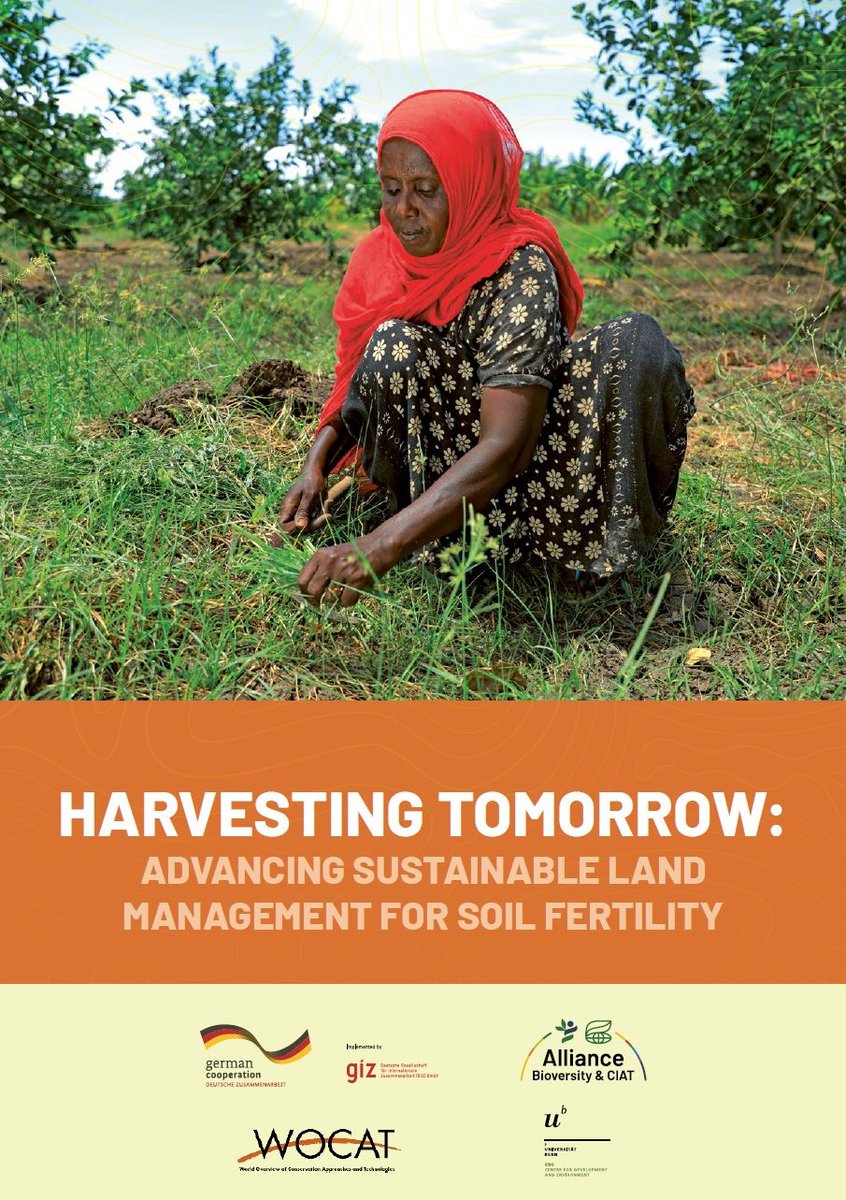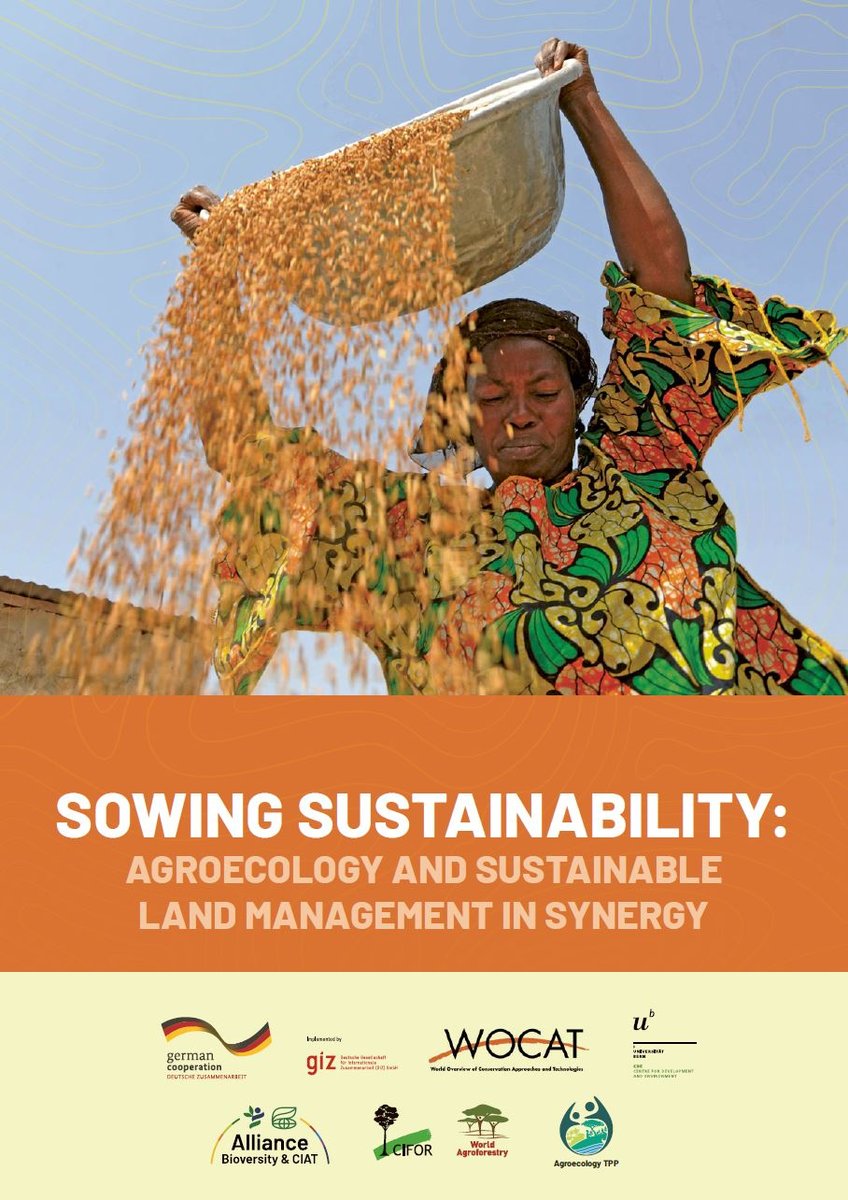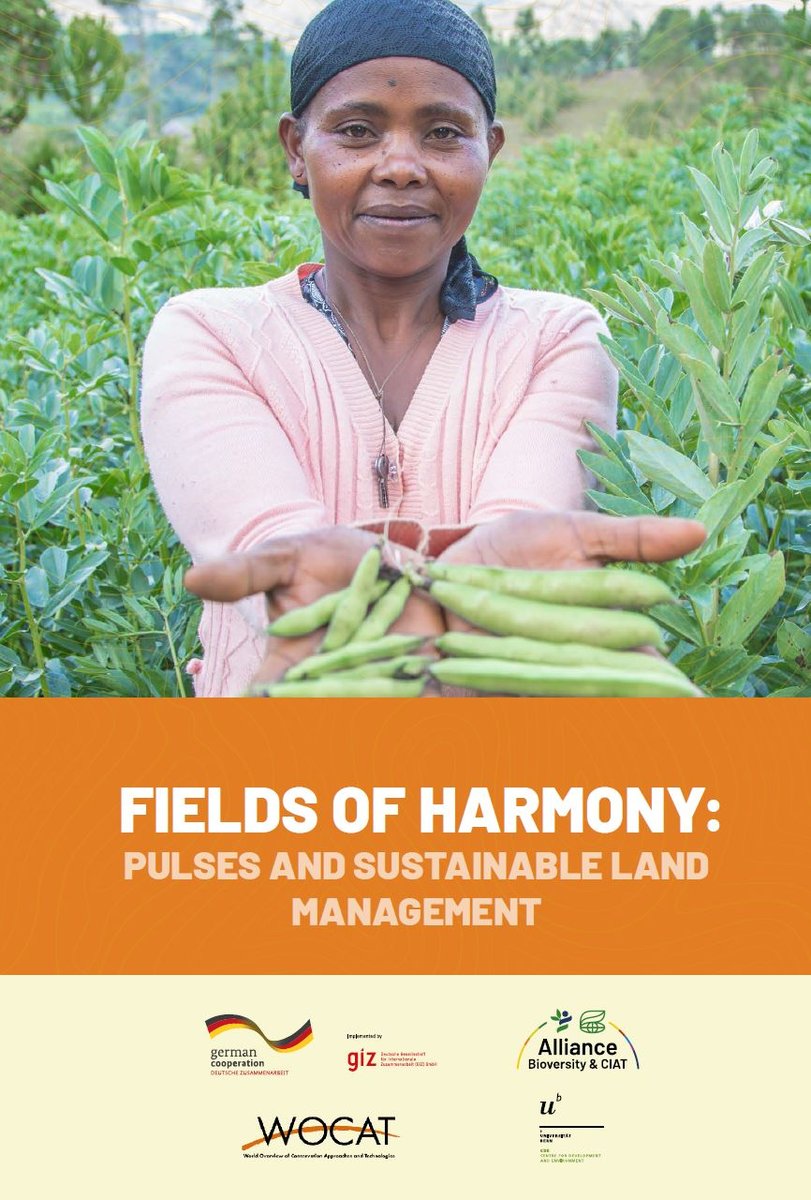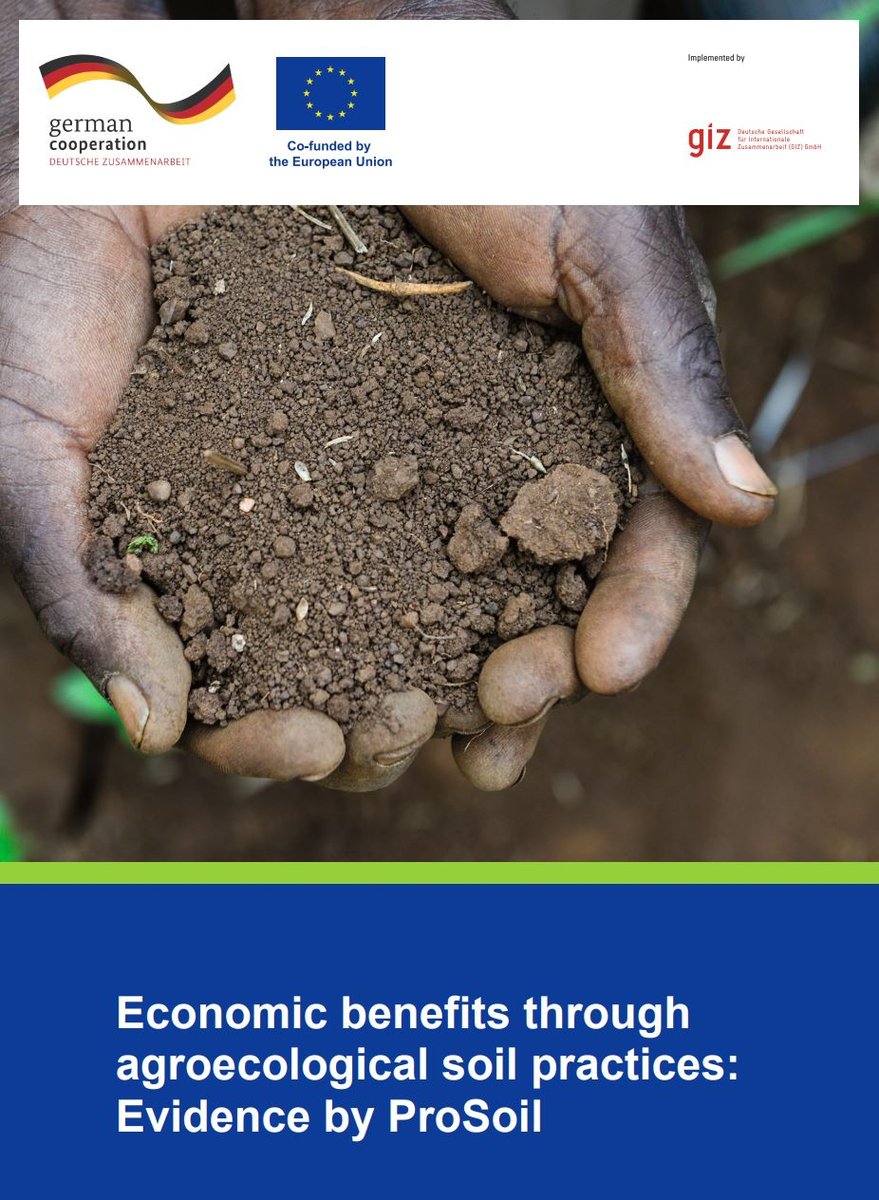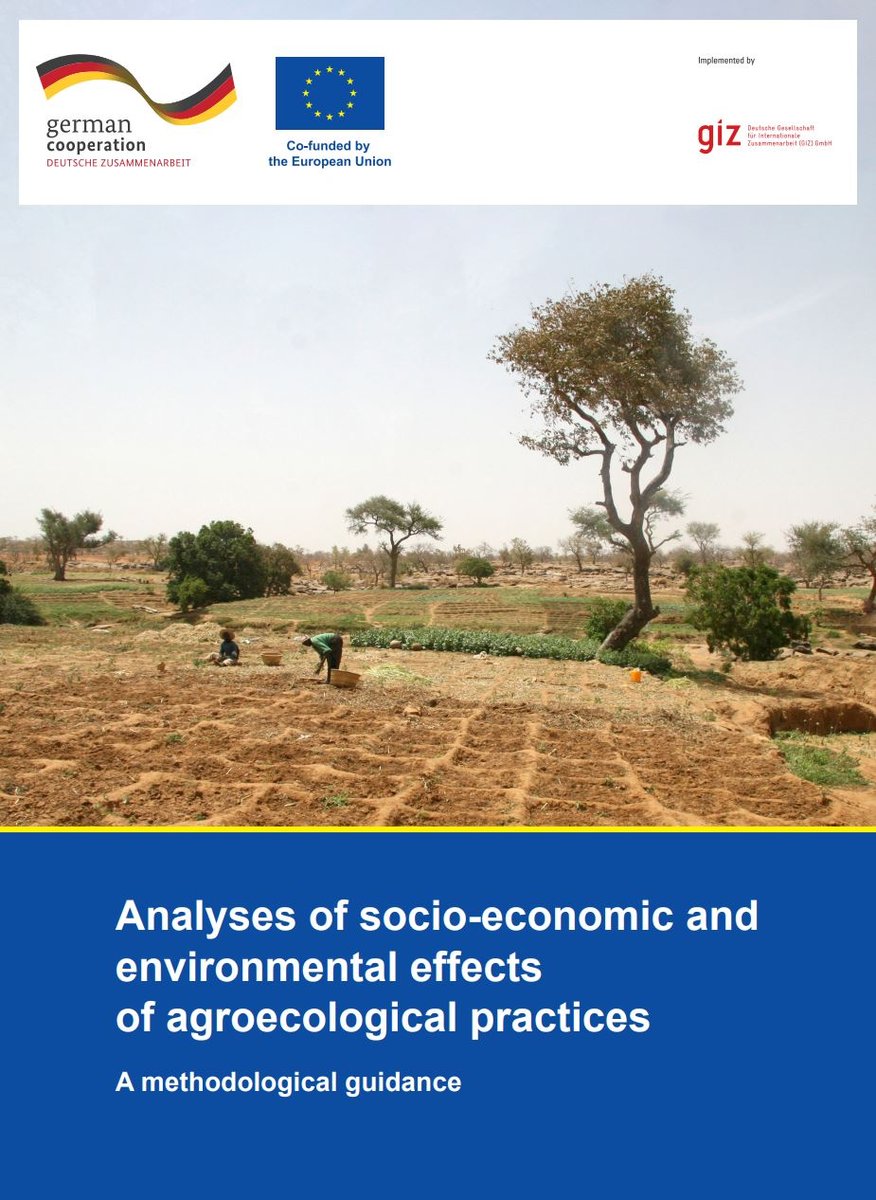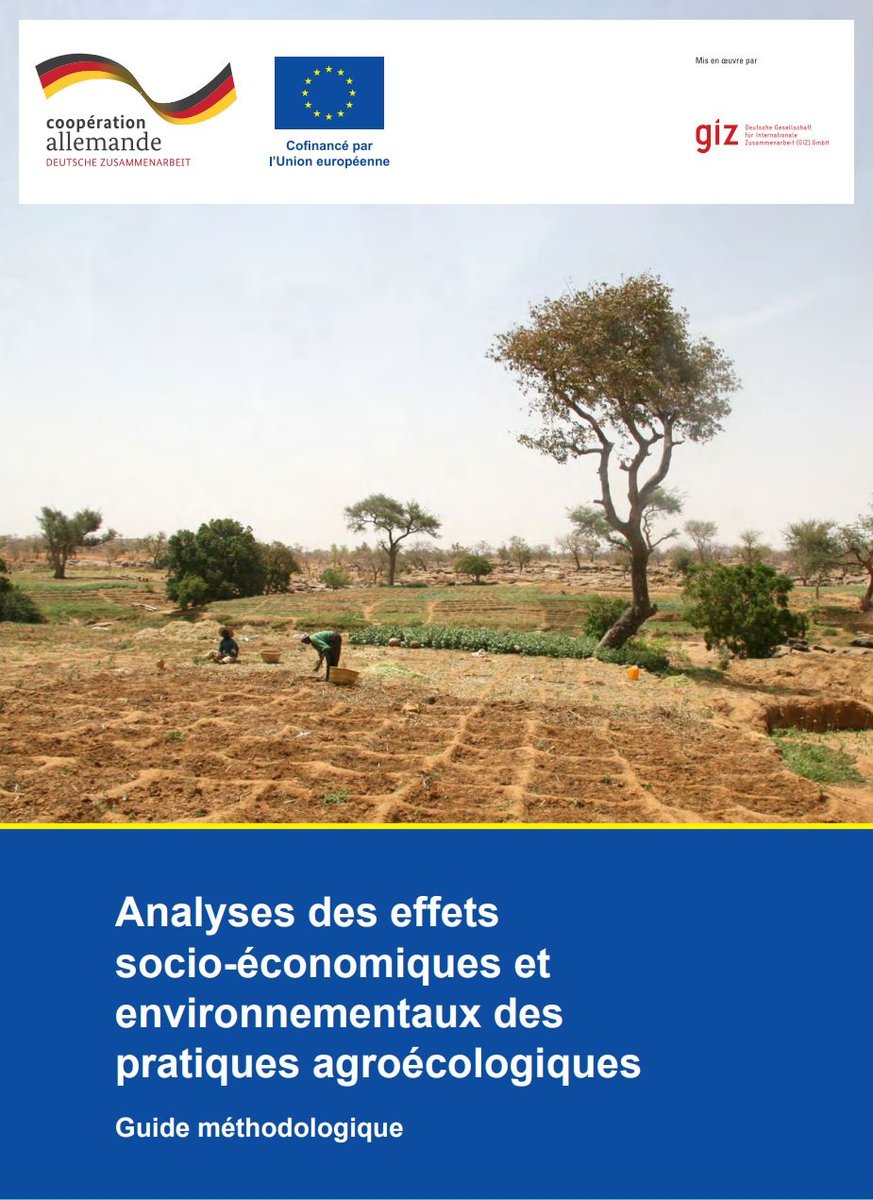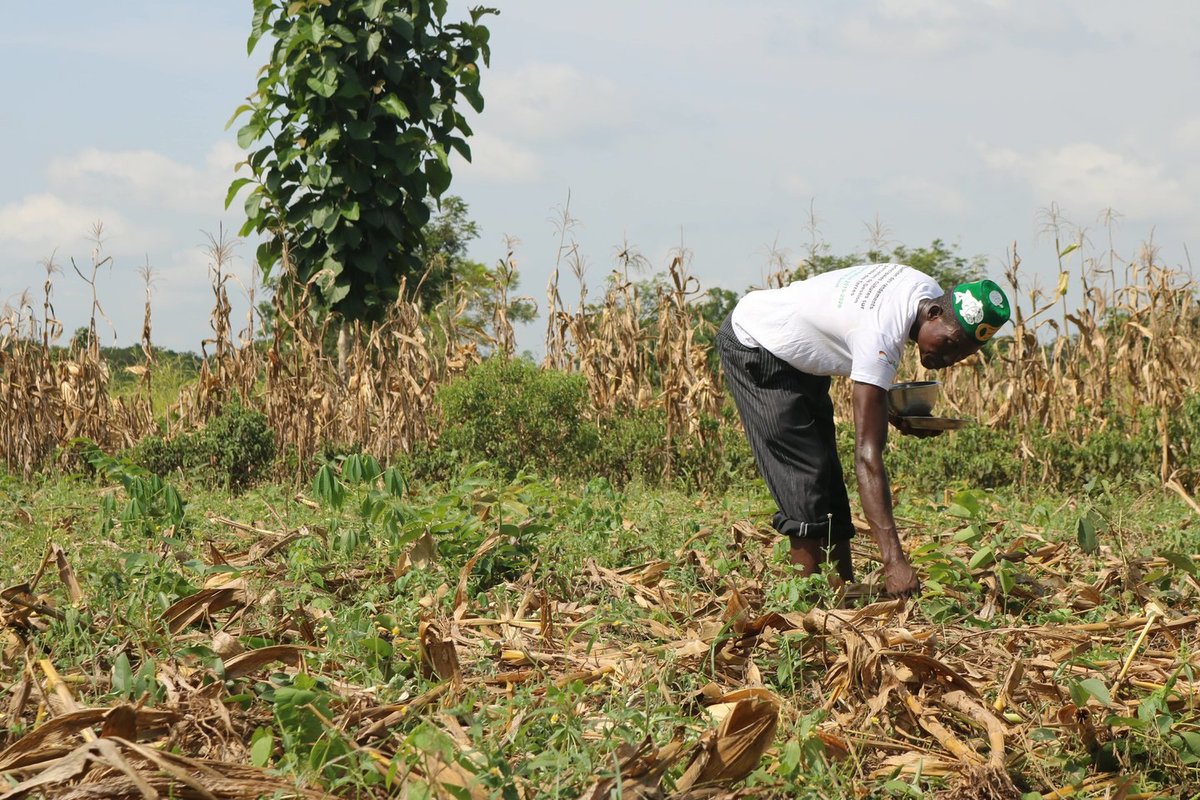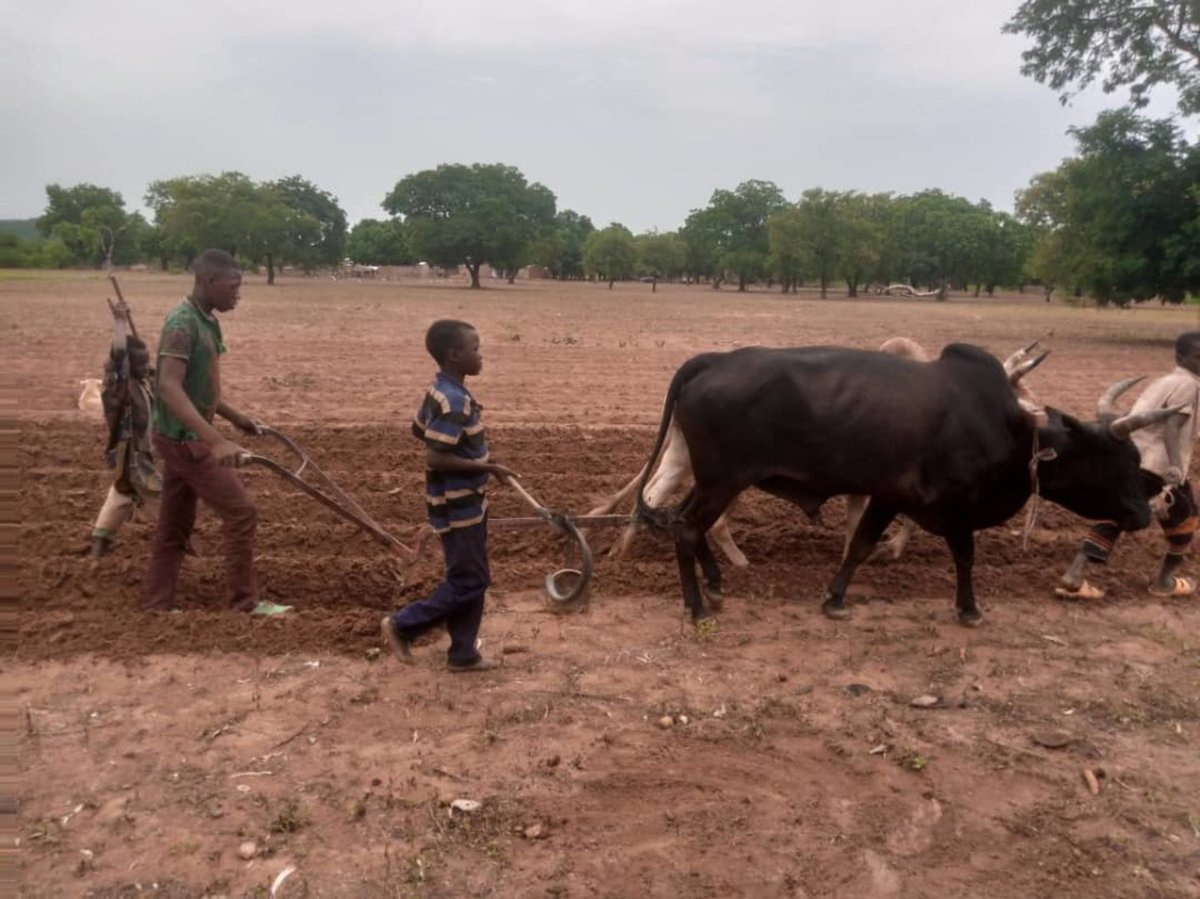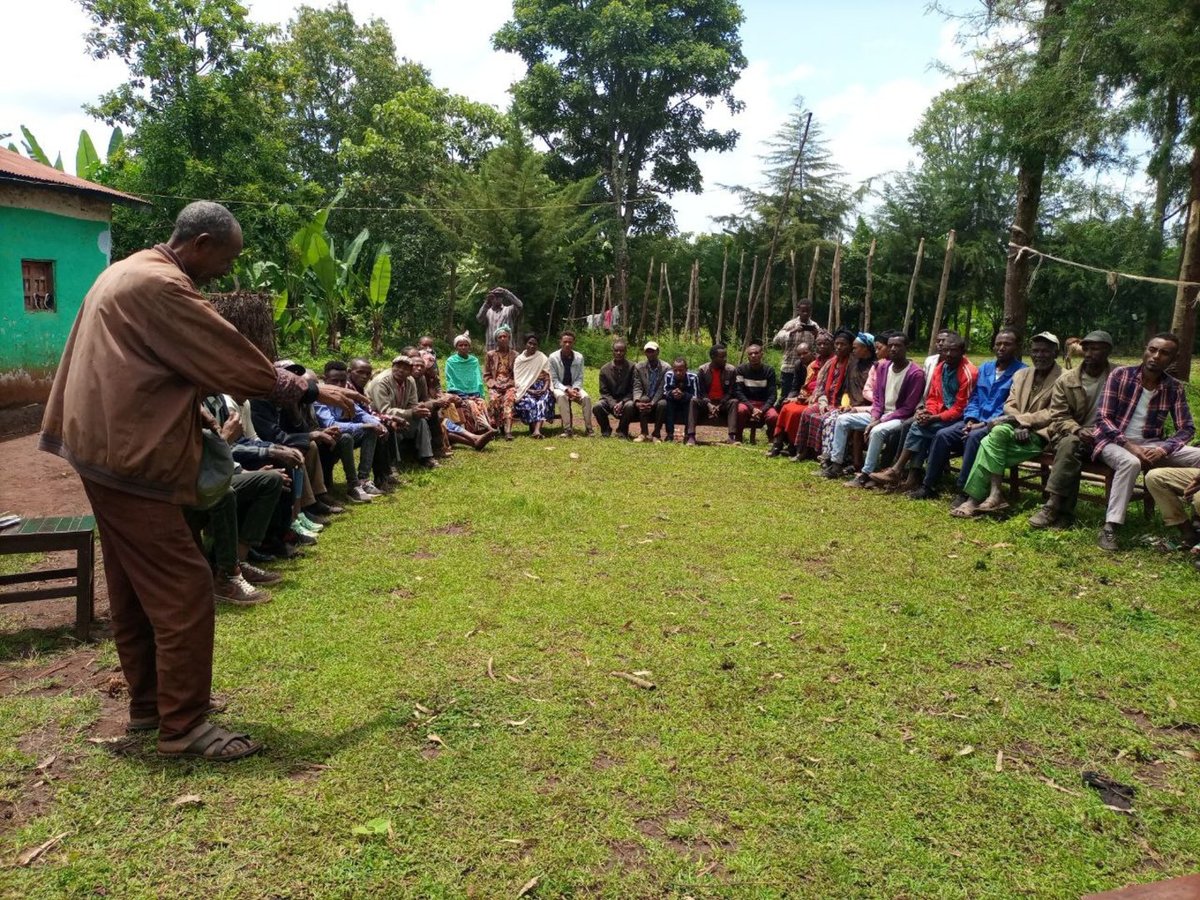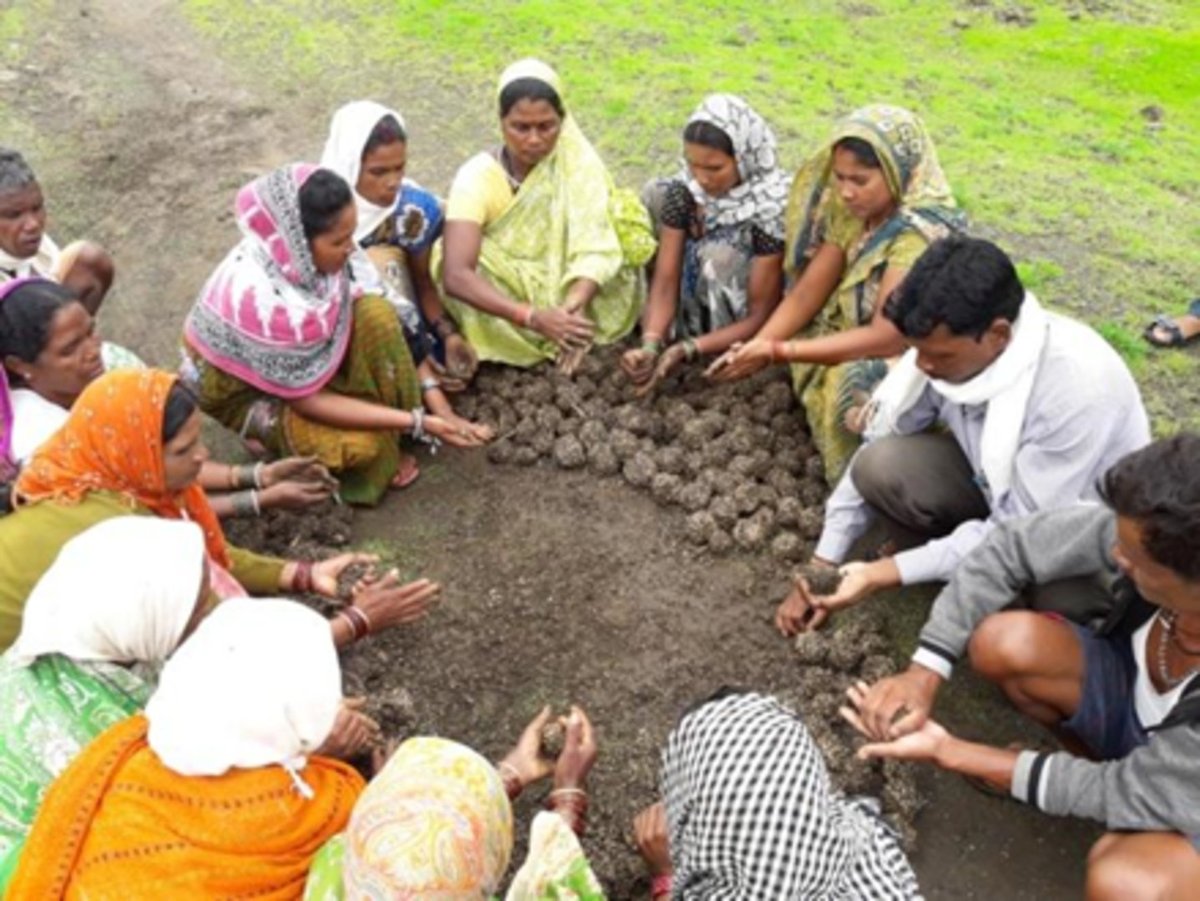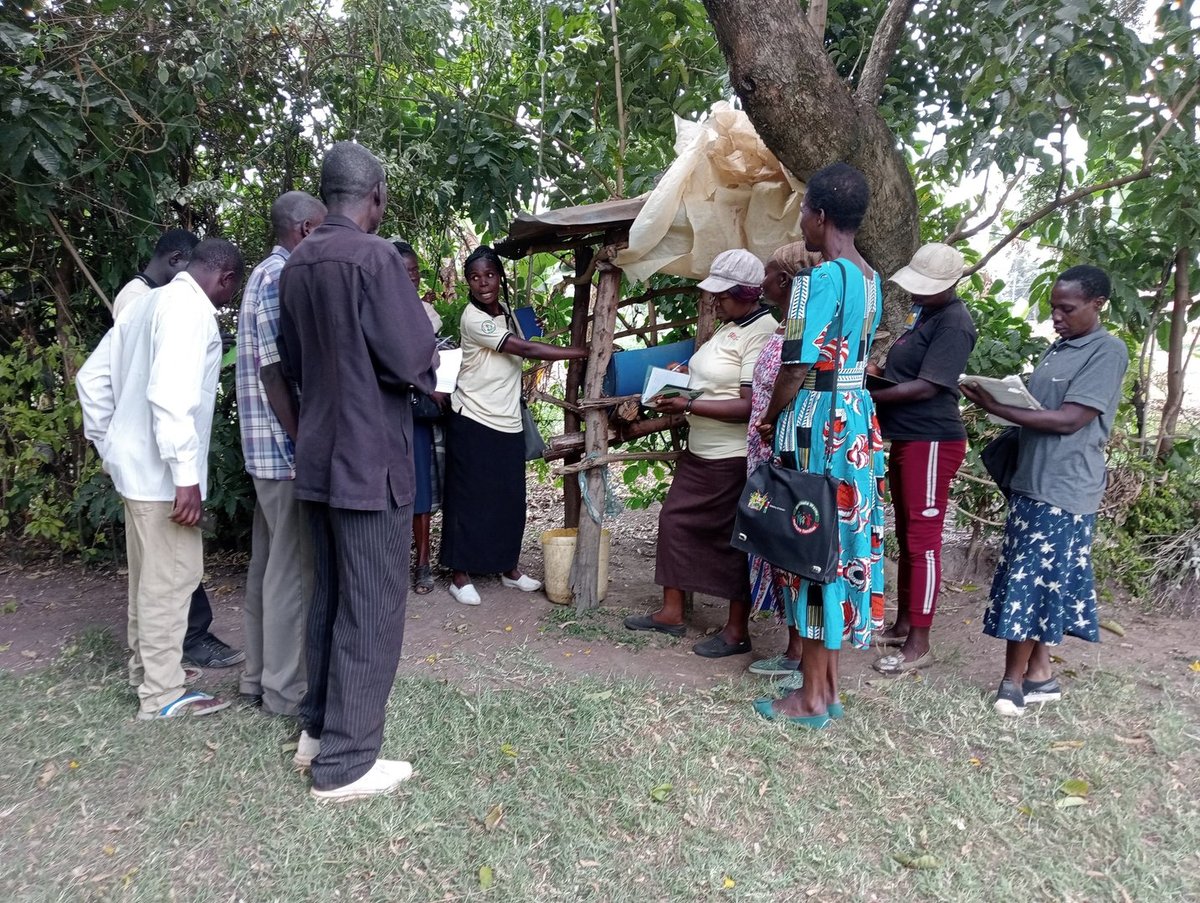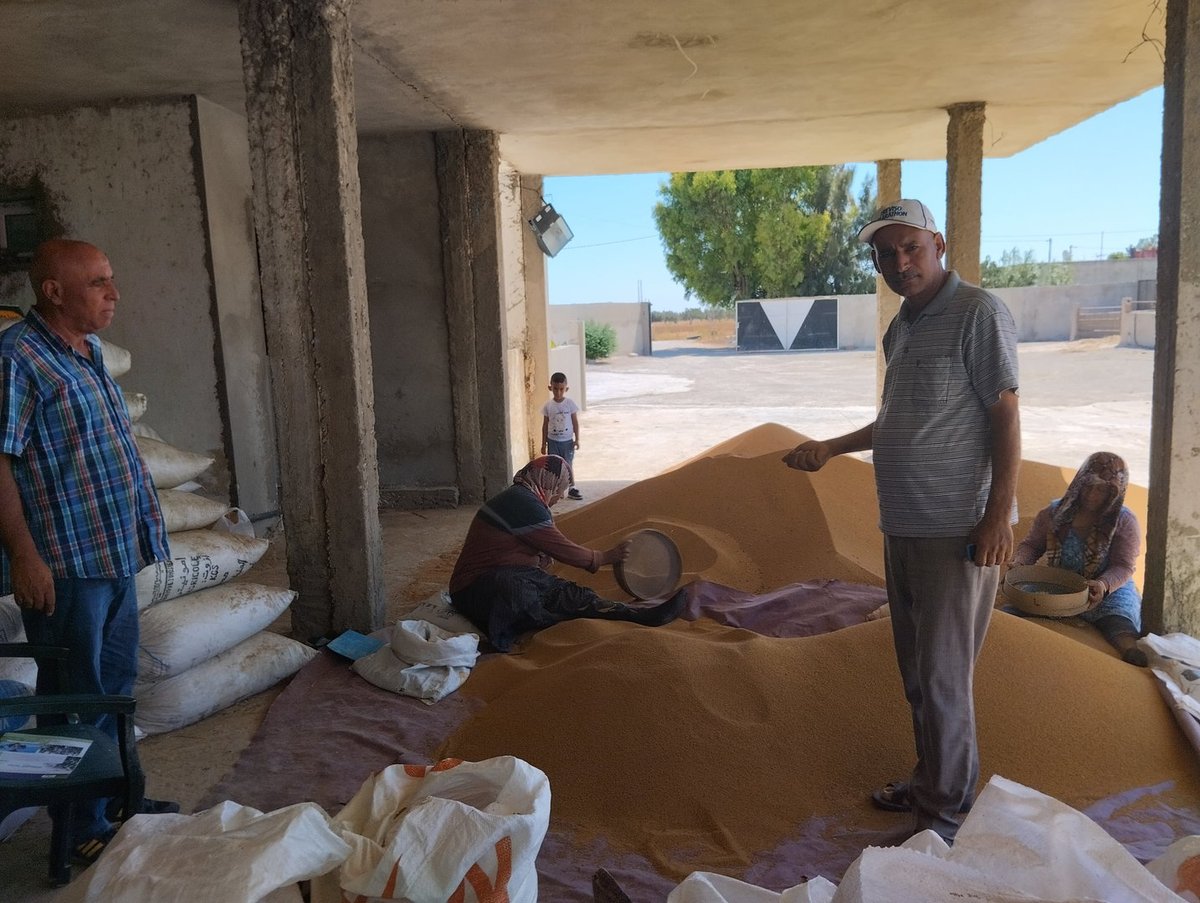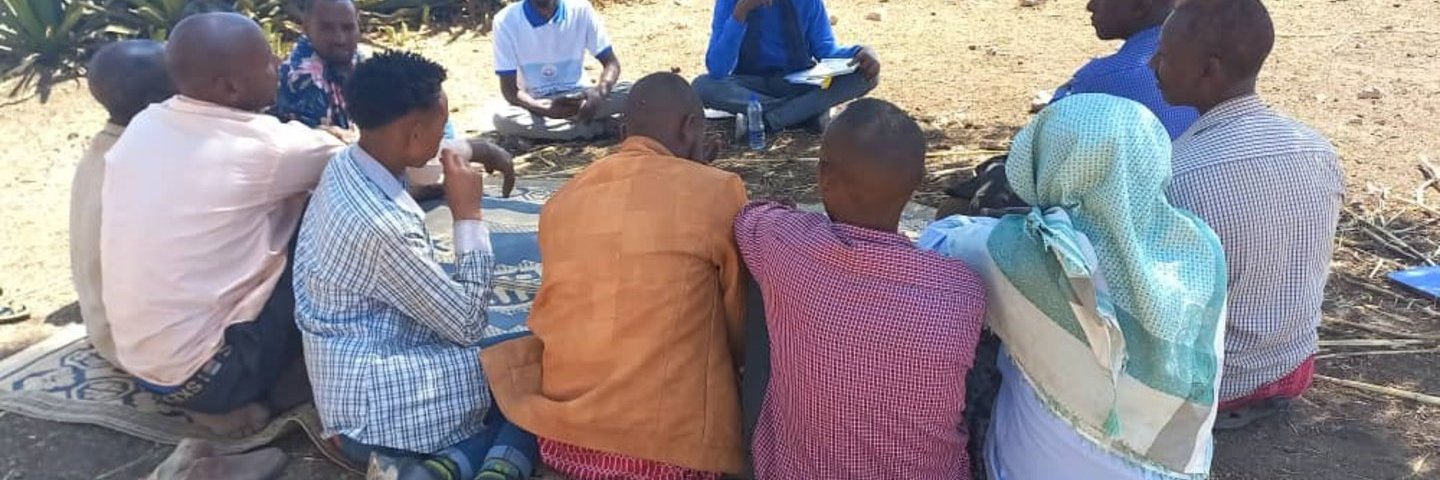
GIZ ProSoil
GIZ ProSoil: The Global Programme “Soil Protection and Rehabilitation for Food Security”
The amount of fertile soil lost worldwide every year recently equalled around a third of the area of Germany, and it continues to grow. This has severe consequences for both the global food supply and the climate. The arid regions in Asia, Africa and Latin America are hit the hardest. Here, the people who live from agriculture suffer the most, as their fields provide the food they need to survive. In addition, fertile soils are the second largest carbon reservoir after the world's oceans, which makes them indispensable for climate protection. This is why concepts that utilise the soil in an ecological way are needed.
Germany’s Federal Ministry for Economic Cooperation and Development (BMZ) makes significant investments in sustainable land and soil management as well as adaptation to climate change and exploring co-benefits with carbon sequestration in Africa and India. As part of BMZ’s special initiative “Transformation of Agricultural and Food Systems”, the Global Programme “Soil Protection and Rehabilitation for Food Security” (ProSoil) is implemented by WOCAT Consortium Partner Deutsche Gesellschaft für Internationale Zusammenarbeit (GIZ) GmbH. ProSoil is co-financed by the European Union (EU) and the Bill & Melinda Gates Foundation.
With the support of the programme, smallholder farmers in Benin, Burkina Faso, Ethiopia, India, Kenya, Madagascar and Tunisia are learning how to protect their agricultural land from soil erosion and how to restore and maintain soil fertility in the long-term using agroecological and climate-intelligent methods. To that end, it is offering training and guidance to both farmers and agricultural consultants. With success: Crop rotations stabilise the soil, planting strips or small stone walls slow down soil loss due to strong winds or rain, legumes and compost enrich the soil with nitrogen and organic matter, thus reducing the need for mineral fertilisers. The programme is further cooperating with governmental institutions and entities from the realms of science, research, the private sector, and civil society to establish framework conditions that will promote change in agricultural and food systems.
Learn more about ProSoil’s best SLM practices below:
Best practices from all project countires
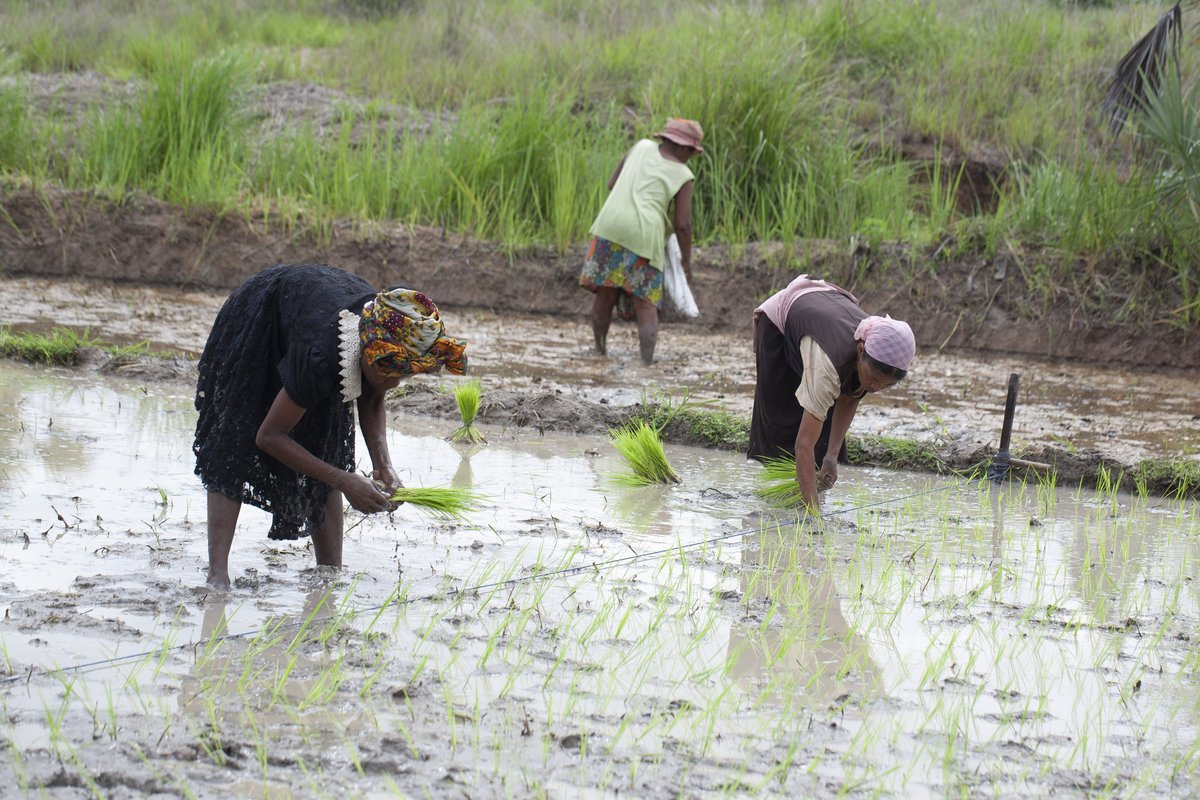
Discover good practices from Madagascar documented with the WOCAT Questionnaire on SLM technologies and watch the documentary on "Agroecology: Farming approach for the Future" produced by WOCAT Consortium Partner GIZ.

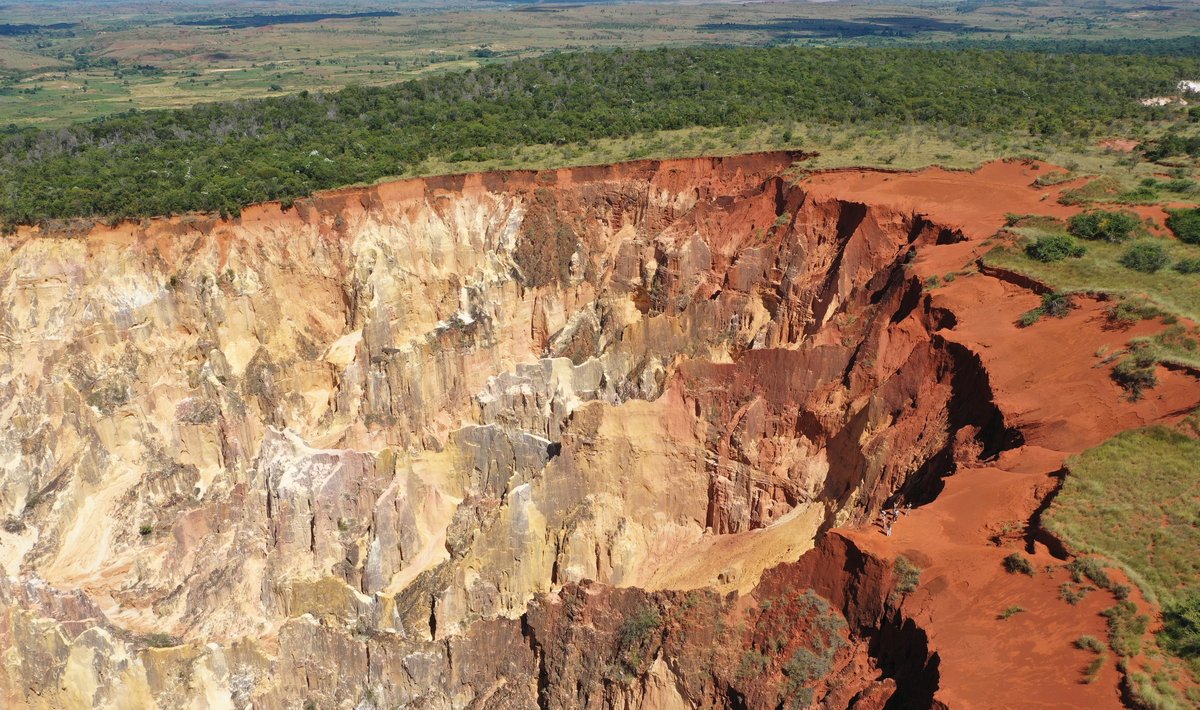
Publications
